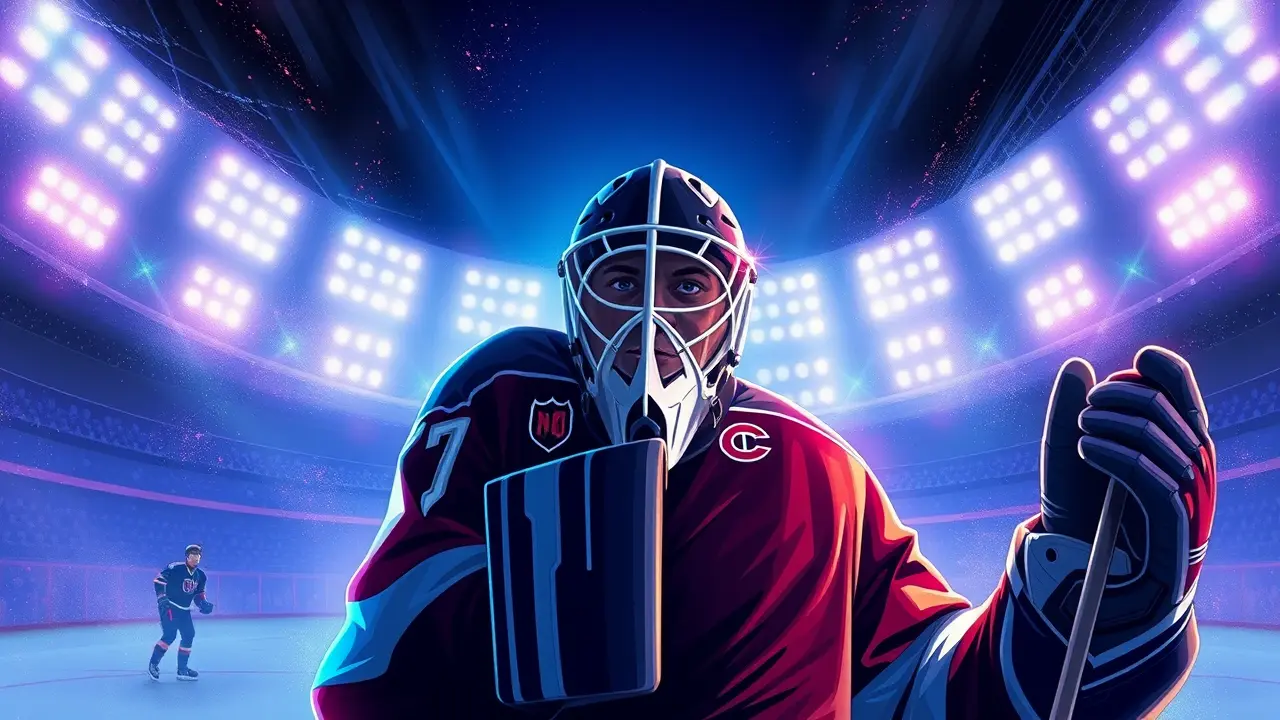Kolobkov Calls Hasek Crazy for NHL Comments on Russians
The hockey world just got hit with some serious, unexpected drama, and honestly, it feels more like a heated exchange you'd hear courtside at an NBA game than the usual on-ice chatter. Former NHL goalie and Czech legend Dominik Hasek, a guy whose name is etched in hockey history for his unorthodox, downright brilliant play, decided to step way outside the crease and blast the NHL's leadership over its political stance, or lack thereof, specifically concerning Russian players.Hasek, never one to mince words even in his playing days, came out swinging, criticizing the league for what he sees as effectively muzzling Russian athletes from speaking out on geopolitical actions involving their home country, going so far as to claim that the league's silence could have dire, real-world consequences, suggesting people could die because of it. That’s a heavy, heavy charge to lay at the feet of a sports league.But the reaction from the other side was just as fiery and personal. Russian official Kolobkov didn't just disagree with Hasek's take; he went full-nuclear, essentially calling the Hall-of-Famer crazy.In a brutal dismissal, Kolobkov stated that Hasek has 'lost his mind,' labeling him a 'completely inadequate madman' whose comments shouldn't be given any oxygen. It’s the kind of personal attack that shifts the conversation from a policy debate to a character assassination, and Kolobkov’s plea to remember Hasek only as the 'great hockey player' he once was feels like a deliberate attempt to bury the current man and his controversial opinions under the weight of his past glory.This isn't just a simple disagreement; it's a cultural and political fault line cracking open right through the middle of the sport. To understand why this is such a big deal, you have to look at Hasek's recent trajectory.This isn't some one-off tweet. He's been building a reputation as a fiercely outspoken critic on these issues.Remember his visceral reaction to that meeting between Presidents Putin and Trump, where he expressed sheer disbelief at the 'red carpet' treatment and the friendly handshake? Or his frustration when a U. S.official congratulated Russia on its national day, which he interpreted as the U. S.administration supporting Russia? This is a pattern for Hasek now. He’s viewing the world of international sports and politics through a specific, highly critical lens, and he’s not afraid to connect the dots in a way that makes powerful institutions very uncomfortable.On the flip side, Kolobkov’s response is a classic playbook move, one we see in politics all the time: when you can't easily refute the argument, you discredit the messenger. By painting Hasek as unhinged, he attempts to automatically invalidate the underlying criticism of the NHL's policy and, by extension, the uncomfortable questions it raises about the role of athletes in global conflicts.The NHL itself is stuck in an impossible position. It's a global business with a massive Russian talent pool—stars like Ovechkin, Kucherov, and Panarin are not just players; they are the league's box office.Forcing them into a political corner could alienate a huge fanbase, create locker-room tensions, and jeopardize its international market. Their cautious, often silent, approach is a corporate survival tactic, but as Hasek points out, that silence has a moral cost.It’s the eternal struggle of sports leagues: are they purely entertainment, or do they have a social and ethical responsibility that transcends the game? This Hasek-Kolobkov spat is just the latest, loudest symptom of that unresolved tension. It echoes past controversies, like the NBA's handling of its relationship with China, which showed that when geopolitics and profits collide, the league often treads very carefully.The consequences here are multifaceted. For Hasek, his legacy is now bifurcated: the iconic, flailing goalie versus the provocative political commentator.For the NHL, the pressure is mounting to define its stance more clearly, as the world increasingly demands that organizations take a stand on human rights and international law. And for the players, especially the Russians, they remain in a terrible bind, caught between their careers, their homeland, and their personal convictions, with no easy way out. This is more than just a war of words between two hockey personalities; it's a microcosm of how modern sports are being forced to grapple with the messy, complicated world they operate in, and frankly, it’s a story with more layers and drama than a playoff overtime thriller.
It’s quiet here...Start the conversation by leaving the first comment.
© 2025 Outpoll Service LTD. All rights reserved.
